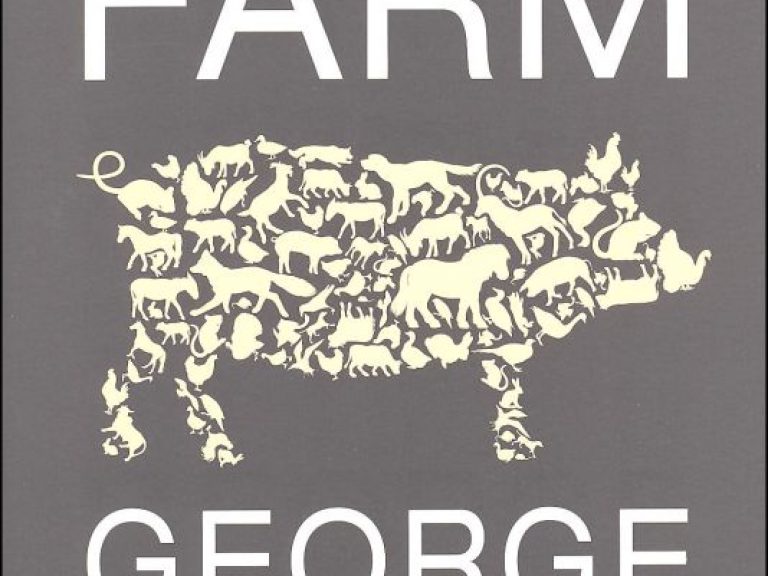Year 11 Advanced English students are being encouraged to move beyond a simplified response to texts and develop a more sustained reflection of the texts’ value and to interact with each other and be inspired by others as part of their wide reading project.
Fay Weldon, author, feminist and critic, describes good literature that we value, that is, literature with “a capital L”, in the following ways:
- It resonates in different contexts and, regardless of time, offers the reader insight and meaning
- It promotes reflection, questioning and enlightenment,
- It can offer new ways of thinking that we have not considered before, by shifting and reshaping how we see the world.
- It can encourage us to feel a range of emotions
Below is an example of one blog and the reply from her peer.
Stephanie – Animal Farm, George Orwell
George Orwell’s renowned fable ‘Animal Farm’ known to be “the most important work of “fictional political satire” as the introduction by Malcolm Bradbury states; should certainly be placed on the “Literature with a capital L” reading list as it encapsulates the four values described by Fay Weldon. The fable published in 1945 is a post war novel and depicts the occurrences that indicated the Russian Revolution followed by the age of Stalin leading the Soviet Union through the lives of barn animals.
The progression of the novel promotes reflection and a new way of thinking. As the reader I pondered whether the onerous lives of the animals truly reflected the degree to which people during the war toiled and suffered. Napoleon brainwashes the animals to believe that as their leader, he is doing them justice by cutting their rations and making them work from dawn till dusk to serve him and his fellow superior pigs. This sense of inequality enlightened me to the manipulative ways of individuals and made me question whether or not certain actions were carried out for the benefit of others or for an individual’s personal gain. This reshaped my view of various forms of leadership and made me feel quite sympathetic towards the hardships and difficulty of the time – it opened my eyes to the significant absence of equality and justice there once was.
Consequently, I believe that George Orwell’s ‘Animal Farm’ should be included on the “Literature with a capital L” reading list not only because it encases Fay Weldon’s views of good literature, but also because it offers a new perspective into the terror of war and the hardships in inflicts.
Katherine – reply to Stephanie’s post
I too read a novel written by the famous George Orwell and was consequently drawn into an ‘Orwellian world’ as they call his novels. However, I did read 1984, a most fantastic and unique novel of its time, still apparent to readers of today’s society. Now I – having not read the novel have no idea what it is about in exception of the tales I hear from my friends who have read it – can only experience the novel through your words.
However, it seems intriguing and insightful, much similar to that of ‘1984’. In fact many aspects and values expressed of the novel within your response, especially the idea that ‘man was considered to be the enemy’. This idea is also quite patent within the novel ‘1984’ in which ‘Big Brother’ and ‘The Party’ are considered to be the enemy of the protagonist, Winston. Furthermore, such characters within the novel have also ‘brainwashed’ the rest of the population to believe that suffering, perpetual war, social and economic inequality and the like are a positive impact for mankind; when realistically, only The Party themselves gained from such actions.
I’d be doing Orwell a dishonor if I didn’t mention the main and most obvious similarity between the texts – that of implications and reflections of the political world within the context of the writing of the novel. ‘Animal Farm’ (judging by your most sophisticated response) incorporates the impact of Communist Russia with the animals representing famous human personalities from the era. Similarly, ‘1984’ also focused upon the predication of the falling of the British Democracy, however it incorporated a more futuristic setting in which the long-term impacts of such a prediction are featured. These impacts are extreme and revolve mainly around the suffering – just as is the main theme of ‘Animal Farm’.
After researching the reason for such a wide range and large amount of similarities between the two texts ‘Animal Farm’ and ‘1984’, I have discovered that the two novels were written at around the same time and context – thereby explaining the same themes of suffering and war and the prediction of what is to come from such things. All in all, Orwell has proved himself a fantastic writer and, even though I have not yet read ‘Animal Farm’ (although after reading your response I certainly will), I am sure both texts are worthy of being incorporated into the Literature with a Capital ‘L’ reading list.



